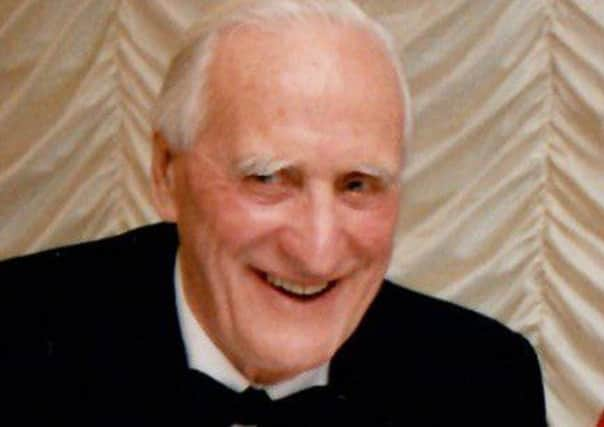Obituary: Ralph Sutcliffe, wool executive


He was also an active sportsman, playing first team rugby for Huddersfield Old Boys, the forerunner of Huddersfield RUFC, and later for Northern Command, alongside the renowned Welshman, Gus Risman.
Born in 1922 at St Helen’s Gate Farm in Almondbury, Huddersfield, where his maternal grandfather worked as a tenant farmer, he went to the local school, King James Grammar, where his sporting prowess earned him early selection for the cricket XI.
Advertisement
Hide AdAdvertisement
Hide AdBut it was rugby that was in his genes. His father had played rugby league professionally and his grandfather, Milford Sutcliffe, was a member of the Huddersfield RU team that split from the Rugby Football Union. Milford had been present at the historic meeting in the George Hotel in 1895 at which the Lancashire and Yorkshire clubs voted to secede.
Ralph’s school career finished early when he went to RAF Cranwell to train as a pilot, with a view to becoming a commercial airline flyer later on. He changed his mind, deciding that the job would be little different to being a long-distance bus driver.
Instead, at his father’s suggestion, he joined Edward Haigh as a wool salesman.
But war was on the horizon and at 16 Ralph enlisted in the Territorial Army, with the 2/7th Duke of Wellington’s Infantry. Signing up alongside him was James Hanson, the future Lord Hanson.
Advertisement
Hide AdAdvertisement
Hide AdIn 1940 the battalion was sent oversees without Ralph, who was not quite old enough. He undertook various postings in the UK with spells in the Infantry and Royal Engineers and moved through the ranks to be commissioned in the Royal Artillery in 1941.
A year later he volunteered for the Royal Artillery Air Observation Post and began his training, first in artillery and then as a pilot flying the de Havilland Tiger Moth and the Auster.
In February 1944, his squadron was drafted overseas and Ralph was transferred to Eboli, the main base for the Royal Artillery for the Central Mediterranean Area. His role was to provide the Ground Observation Officers with details of the enemy’s positions, to help them direct artillery to the most telling effect. It was hazardous work with a constant risk of being hit by artillery shells or small arms fire, but despite some narrow escapes, Ralph came through unscathed.
Operational flying gave way to instructing but that came to an end in early 1945 when he suffered a serious injury to his knee while paying rugby, and he spent VE Day in a convalescent hospital.
Advertisement
Hide AdAdvertisement
Hide AdAfter demob, he returned to Huddersfield to take up where he left off at Edward Haigh. In 1959 he suffered a near-fatal breakdown from overwork, from which it which took a year or more to recover.
But he progressed through the ranks, and under his leadership the company prospered. He stayed on for four years after its acquisition in 1978 by the commodities group, S&W Berisford, and for several years he sat on the West Riding Industrial Council.
In retirement, he pursued his love of country sports and developed new business interests in property. In 2015, in a charitable venture, he self-published his memoirs under the title, Woolman.
In 1948, he married Joyce Brigg, who had been widowed in 1946 shortly after the birth of her son, Jeremy. She and Ralph had two sons, Christopher and Martin. Joyce died in 2010, Christopher in 2005 and Jeremy three years later.